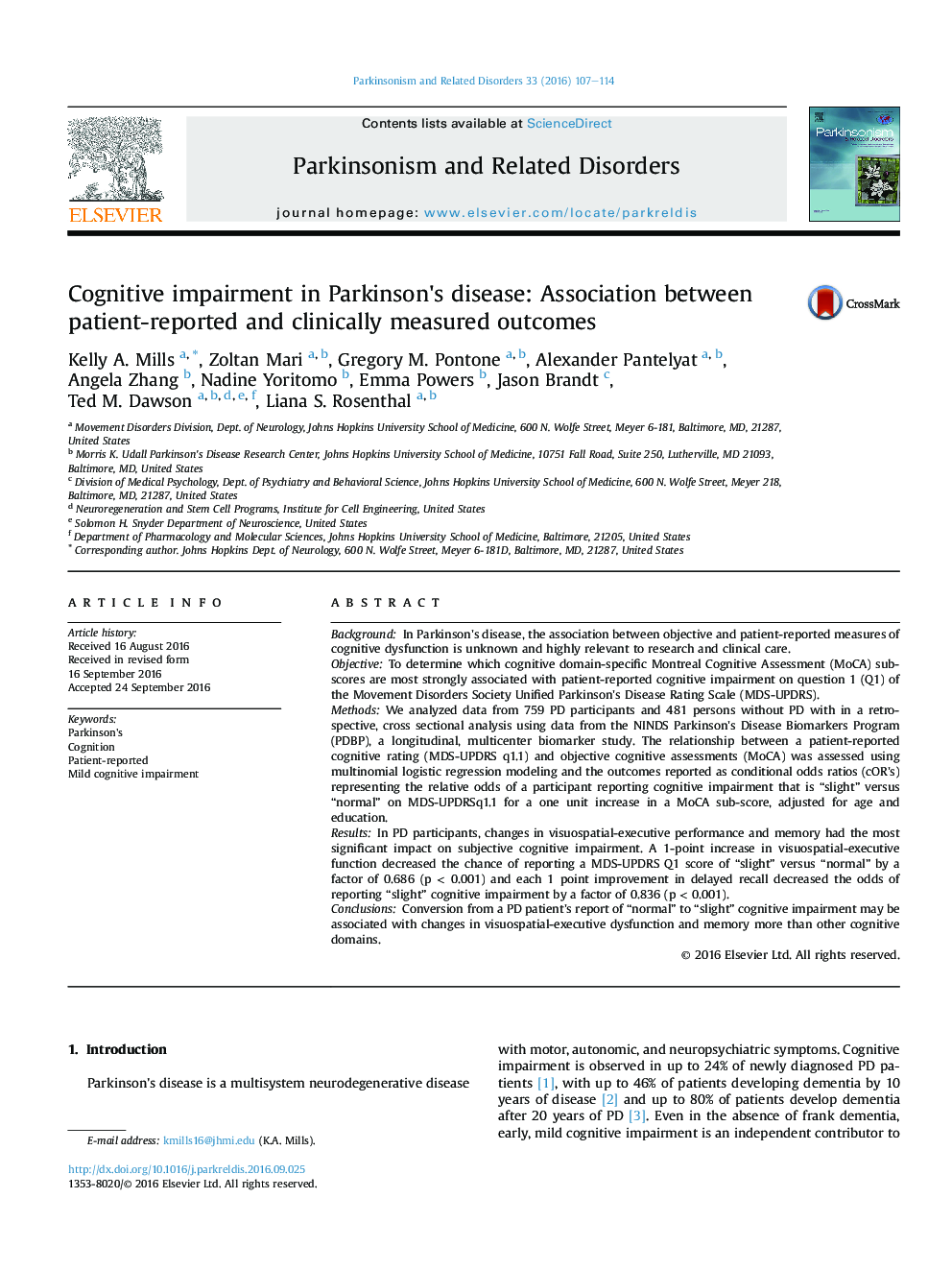| Article ID | Journal | Published Year | Pages | File Type |
|---|---|---|---|---|
| 5504010 | Parkinsonism & Related Disorders | 2016 | 8 Pages |
â¢Subjective and objective cognitive impairment in Parkinson's disease are compared.â¢Early cognitive complaints associate with posterior cortical deficits in Parkinson's.â¢Visuospatial deficits underlie early cognitive complaints in Parkinson's disease.
BackgroundIn Parkinson's disease, the association between objective and patient-reported measures of cognitive dysfunction is unknown and highly relevant to research and clinical care.ObjectiveTo determine which cognitive domain-specific Montreal Cognitive Assessment (MoCA) subscores are most strongly associated with patient-reported cognitive impairment on question 1 (Q1) of the Movement Disorders Society Unified Parkinson's Disease Rating Scale (MDS-UPDRS).MethodsWe analyzed data from 759 PD participants and 481 persons without PD with in a retrospective, cross sectional analysis using data from the NINDS Parkinson's Disease Biomarkers Program (PDBP), a longitudinal, multicenter biomarker study. The relationship between a patient-reported cognitive rating (MDS-UPDRS q1.1) and objective cognitive assessments (MoCA) was assessed using multinomial logistic regression modeling and the outcomes reported as conditional odds ratios (cOR's) representing the relative odds of a participant reporting cognitive impairment that is “slight” versus “normal” on MDS-UPDRSq1.1 for a one unit increase in a MoCA sub-score, adjusted for age and education.ResultsIn PD participants, changes in visuospatial-executive performance and memory had the most significant impact on subjective cognitive impairment. A 1-point increase in visuospatial-executive function decreased the chance of reporting a MDS-UPDRS Q1 score of “slight” versus “normal” by a factor of 0.686 (p < 0.001) and each 1 point improvement in delayed recall decreased the odds of reporting “slight” cognitive impairment by a factor of 0.836 (p < 0.001).ConclusionsConversion from a PD patient's report of “normal” to “slight” cognitive impairment may be associated with changes in visuospatial-executive dysfunction and memory more than other cognitive domains.
